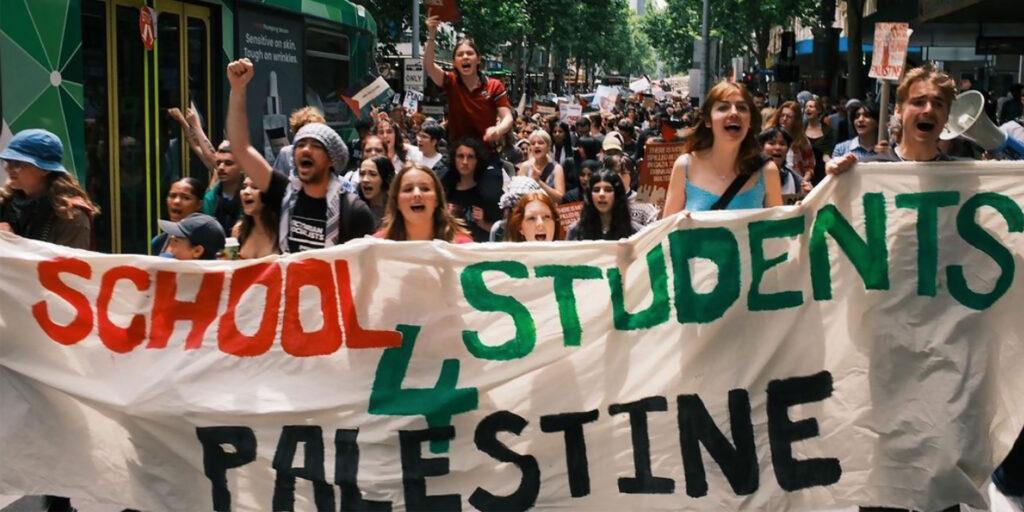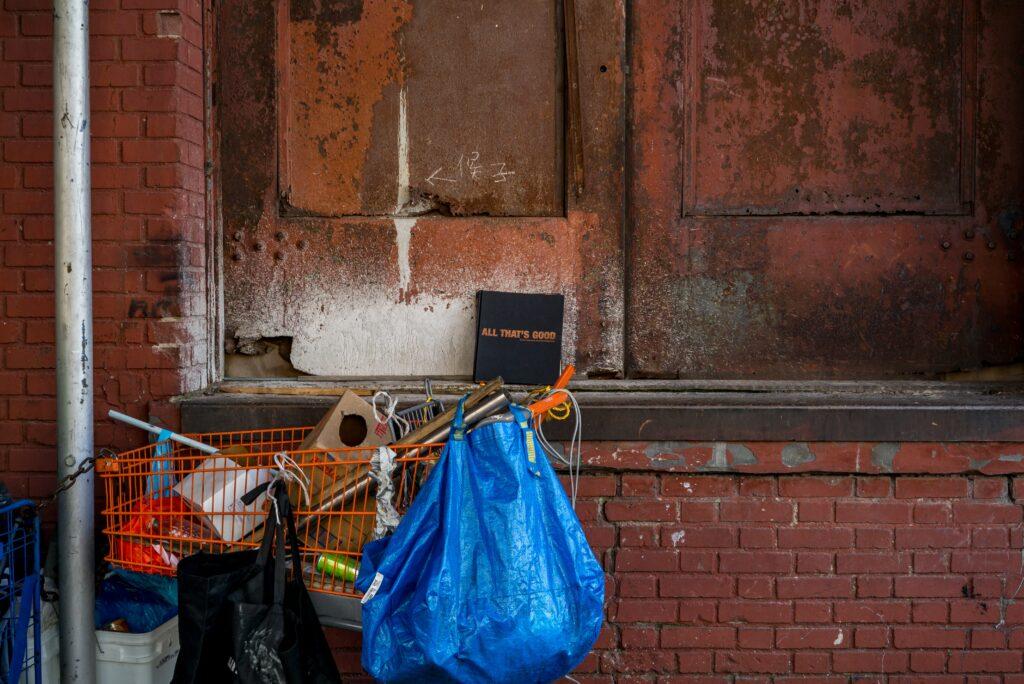When voters go to the polls for the Indigenous Voice to Parliament referendum next month, a good many will be first or second generation Australians, meaning either they or their parents were born overseas. How do these voters relate to the issue of reconciliation, and what drives their decision making on the Voice?
On 14 October, Australians will be asked in a referendum whether they want to recognise Aboriginal and Torres Strait Islanders as the First Peoples of Australia by making a constitutional amendment to establish a Voice to Parliament.
The referendum is informed by the Uluru Statement From the Heart, a petition put forward by a working group of First Nations Peoples in 2017 seeking to advance reconciliation in a process widely referred to as ‘Voice, Treaty and Truth.’ Proponents of the Voice say that this is necessary to right past wrongs and create a better future for Australia.
It is perhaps intuitive that, while none of those involved in Australia’s legacy of historic wrongs remain alive today, descendants of the aggrieved may feel amends are owed, and descendants of the perpetrators may feel some responsibility for the making of amends. However, such framing necessarily excludes roughly half of the population of Australia who are immigrants, or the children of immigrants.
True to its international reputation, Australia is an incredibly culturally diverse country. Around a third of the resident population was born outside of Australia (29.1 per cent), and just under half have a parent born overseas (48.2 per cent), according the most recent census (2021). In the last financial year alone, nearly 200,000 immigrants became Australian citizens, representing hundreds of different nationalities.
As voting in the upcoming Voice referendum is restricted to Australian citizens, not all of Australia’s culturally diverse residents will be eligible to vote, but many will. Australia has high levels of voting participation among new citizens, with the Australian Electoral Commission reporting enrolments hovering around or just below the national target of 95 per cent. Most second generation Australians (though not all), who were born in Australia to one or both parents born overseas, are citizens and therefore are eligible to vote.
How then, does this cohort of ‘new’ Australians relate to the public conversation around the Voice? We asked several first and second generation Australians, and their responses were as diverse as their cultural heritage.
Giselle a 35-year-old researcher who was born in Perth to immigrant parents of Anglo and Indian heritage doesn’t see much distinction between herself and Australians of colonial settlement descendancy. “I think we’re all Australian,” she says. “My grandfather used to wear Australian flags on Australia Day, he was very patriotic. He lived here since 1967 and was as Indian as they come, but he was so proud to be Australian.”

Giselle reflects that her own mixed heritage gives her a sense of having one foot in each camp – the colonialist (Anglo) and the colonised (Indian) – and being able to see things from both sides.
She recounts one instance when, while travelling in Austria as a teenager, a local accosted her over the treatment of First Nations Australians. “He said, ‘How could you?’ I said, ‘What do you mean? ‘And he said, ‘I can’t believe what you Australians did to Aboriginal people and the Stolen Generations.’ And I was just sort of dumbfounded. I was like, ‘What? That was that wasn’t me!’”
But although Giselle knows she has not perpetrated harms, she says that because she enjoys residual benefits from the colonisation of Australia, she wants to participate in the reconciliation process and to see First Nations people “have a seat at the table.” Giselle feels, “genuinely sorry for the way that Australia’s First Nations people were ravaged, them and their culture, their way of life.”
Giselle says her initial instinct was to vote Yes, but it wasn’t until she had engaged with arguments on both sides that she felt ready to lock in her vote. Giselle acknowledges a number of the counter arguments to the Yes campaign, offering thoughtful rebuttals for each one – she’s clearly thought this through and appears to have taken on the education process as a civic duty.
While some voters are put off by the Voice’s role in facilitating Treaty and Truth, as articulated in the Uluru Statement supporting documentation and by Voice architects such as Professor Megan Davis, Giselle sees this as a key reason to vote Yes.
“I’m really looking forward to the treaty and truth telling process. I think it’s overdue. They’re big steps that will move us towards reconciliation and equity for Indigenous Australians.”
Like Giselle, Suzanne, a first generation Australian who immigrated to Australia from the UK in 2000, is highly engaged on the topic of the Voice. “It’s an issue that’s essentially to do with how we’re going to proceed as a nation, and I signed up to that when I became a citizen,” she says, explaining that she doesn’t think personal connection to the history of reconciliation is necessarily relevant to participation in the vote.
Also like Giselle, Suzanne wants to see an improvement in conditions and opportunities for disadvantaged Australians. However, the 48-year-old mother and marketing manager has different ideas to about how this would best be achieved.
Suzanne calls on her own cultural heritage to illustrate why she believes the premise of the Voice referendum is flawed. “It’s just, where do you draw the line?” she asks, rhetorically. Suzanne reflects that in Britain’s long history, there have been numerous invasions from foreign groups. “What if I identify as a Celt? I want recognition from the Gauls and the Normans because I’m a First Nations person there. I want reparations from the Romans and the Vikings. At what point do we, generationally, have to bear the guilt of ancestors that we may or may not have had?”

Suzanne’s overall take is that the Voice referendum is divisive and will do more to separate Australians than bring them together. “It’s a different kind of discrimination,” she says. “It’s a model centred on victimhood, fostering a sense of grievance and entitlement, propped up by elites virtue signalling on behalf of the oppressed.”
Then, a “cottage industry” of NGOs and grant funds spring up around the issue, bestowing a “halo of being a good corporate citizen” on participant firms, explains Suzanne. “There’s a disincentive to ever declaring us as reconciled or sorry enough, because then the grant money will dry up. It just becomes a distraction from addressing the real problems.”
“I think we should identify where there is need and where people need support, and we as a country should provide support networks and give everyone a fair go,” says Suzanne. “But I don’t think the Voice is going to do that.”
“We are all an accident of our birth,” Suzanne muses. “Let us move forward and let go of the guilt.” Suzanne will vote No on 14 October.
Matt, a second generation Australian born in Sydney to a Maori mother and Malaysian father, is still undecided about how he will vote, but says he will default to No unless the Yes campaign can convince him otherwise.
“I was taught in law school that the constitution is difficult to change for a reason. The law moves slowly and deliberately. When unsure, it’s always safer to reject change and then revisit it,” says the 37-year-old media professional, reflecting the conservatism of his legal training. “We’ve seen examples of laws passed quickly that had to be wound back later, like the 2021 Aboriginal Cultural Heritage laws in Western Australia.”
Matt’s sensibility in approaching the referendum is grounded in the matter-of-fact present, rather than the narrative of the past. “Whether this country was invaded, or colonised or settled, the fact is we are now all subject to the same constitution, so we all have a responsibility to vote,” he says.
Matt is open to being convinced by the Yes campaign, but he says there is “less and less probability” of this because the campaign appears to be “targeted at an emotional voter who is more ripe to be picked. I’m looking for good faith engagement and all I’m getting is a marketing campaign.”
With less than a month to go until votes are cast, the debate surrounding the Voice is coming to a head. As our nation becomes less homogenous in all aspects, adequate political representation of diverse views becomes more difficult, but also more important. Conversations with Australians from diverse backgrounds give insight into myriad reasons behind peoples’ views on the Voice, highlighting the necessity for thoughtful discussion and, especially, listening to each other in the coming weeks.



